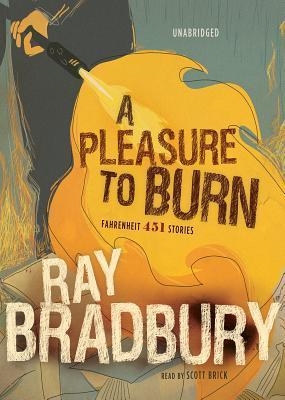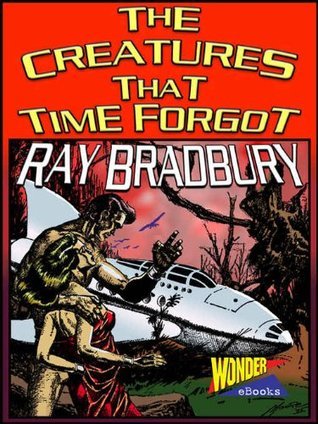
A Pleasure to Burn: Fahrenheit 451 Stories
Book Description
Fire is not just destruction; it's a catalyst for change. In a dystopian world where books ignite fear, the thrill of rebellion pulses through every page of *A Pleasure to Burn: Fahrenheit 451 Stories*. Dive into the lives of those who dare to question the status quo, risking everything for the forbidden knowledge contained within the pages of banned literature. Tensions rise as friendships fracture and alliances form in the shadows of a censoring regime. As the flames of truth flicker and fear tightens its grip, will courage triumph over conformity? What will it take to light the spark of rebellion?
Quick Book Summary
A Pleasure to Burn: Fahrenheit 451 Stories is a collection of Ray Bradbury’s short stories that laid the groundwork for his iconic dystopian novel, Fahrenheit 451. Through a range of vignettes set in a future society where literature is outlawed and critical thinking is suppressed, Bradbury explores themes of censorship, conformity, and resistance. The stories illuminate the slippery slope toward authoritarianism and examine the motivations behind both the enforcers and rebels in a world allergic to independent thought. Through deeply personal and often harrowing tales of citizens who struggle to hold on to the remnants of culture, the collection delves into the consequences of banning books and the irrepressible human yearning for knowledge and freedom. The anthology not only enriches the Fahrenheit 451 universe but also deepens our understanding of the enduring struggle for intellectual liberty.
Summary of Key Ideas
Table of Contents
The Dangers of Censorship and Repression
Bradbury’s collected stories in A Pleasure to Burn serve as a prelude to the world of Fahrenheit 451, focusing on the mechanisms and effects of censorship. Through varied narratives, Bradbury shows how government overreach transforms firemen from protectors into instruments of cultural destruction, burning books to control ideas. This society’s fear of divergent thinking has led to the systematic eradication of literature and art, reflecting a broader anxiety about the impact of unchecked authority.
The Power and Importance of Literature
The stories highlight the irreplaceable value of literature in fostering imagination, empathy, and critical thought. By depicting characters who risk their lives to save books, Bradbury underscores literature’s role as a vital repository of human experience and freedom. For those in the stories, books are more than objects—they embody identity and resistance, holding the seeds of enlightenment that oppressive powers seek to extinguish.
Isolation in a Conformist Society
Central to the collection are individuals struggling with alienation in a society obsessed with uniformity. Those who care about art and knowledge are ostracized or punished, creating pervasive loneliness. Bradbury’s characters navigate personal and societal pressures, torn between conformity’s safety and the dangers of dissent. This isolation exposes the psychological torment wrought by repressive environments as well as the powerful draw of authentic connection.
The Birth and Consequences of Rebellion
Rebellion forms the heart of many stories. Bradbury details the moral awakening necessary to challenge an oppressive system, from small acts of defiance to open confrontation. Risks abound for those who dare to retain or share forbidden knowledge, and moments of rebellion—whether furtive or bold—become essential sparks for broader change. The collection explores the ripple effects of these actions, from shattered relationships to newfound solidarity in secret networks.
The Human Cost of Compliance
Ultimately, Bradbury’s stories illuminate the personal and collective costs of either sustaining or resisting tyranny. The emotional and ethical burdens carried by firemen, conformists, and rebels alike underscore the complexity of choice in a climate of fear. Yet, amid the bleakness, there is hope: the enduring impulse to seek truth and meaning ensures that, even in ashes, the flame of curiosity and dissent can ignite a movement toward freedom.
Download This Summary
Get a free PDF of this summary instantly — no email required.





